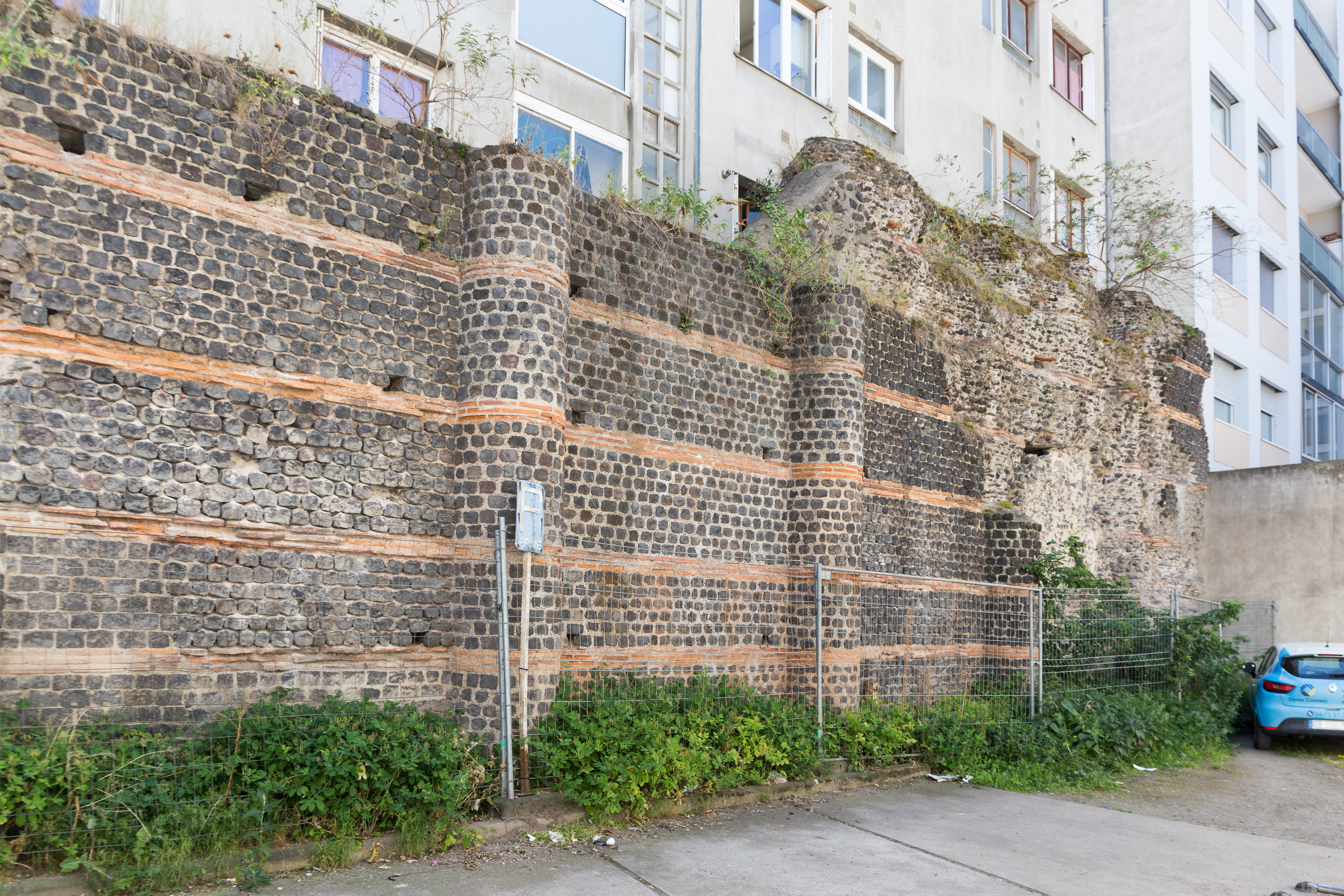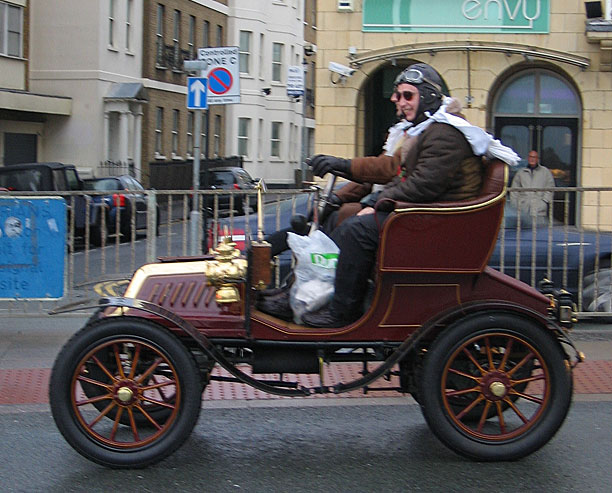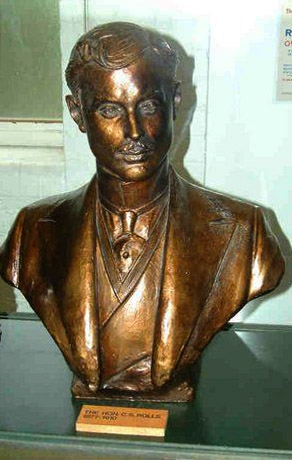|
Г‰mile Mayade
Émile Louis Mayade (21 August 1853 – 18 September 1898) (sometimes misspelled Mayard) was a French motoring pioneer and racing driver. He drove a Panhard et Levassor in the world's first 'city to city' motoring contest from Paris–Rouen (motor race), Paris to Rouen in 1894 and went on win the world's first open motor race, the 1896 Paris–Marseille–Paris, where the first driver across the line was the winner.Driver Database – Internetseite: Biography Émile Mayade was born in Clermont-Ferrand in 1853 and by the 1890s was working as 'Chef d'Atelier' at Levassor in Paris, looking after the workshop and machinery, plus participating in the development of the cars. He was married to Jeanne Marie Louise Dussutour of Tarbes and they lived above the Levassor workshop in the 'Avenue d'Ivry' in the 13th arrondissement of Paris. Racing Mayade drove a Panhard et Levassor Phaeton body, Phaeton 8 hp in the world's first motoring event from Paris–Rouen (motor race), Paris to ... [...More Info...] [...Related Items...] OR: [Wikipedia] [Google] [Baidu] |
Clermont-Ferrand
Clermont-Ferrand (, , ; or simply ; ) is a city and Communes of France, commune of France, in the Auvergne-RhГґne-Alpes regions of France, region, with a population of 147,284 (2020). Its metropolitan area () had 504,157 inhabitants at the 2018 census.Comparateur de territoire: Aire d'attraction des villes 2020 de Clermont-Ferrand (022), UnitГ© urbaine 2020 de Clermont-Ferrand (63701), Commune de Clermont-Ferrand (63113) INSEE It is the Prefectures in France, prefecture (capital) of the Puy-de-DГґme departments of France, dГ©partement. Olivier Bianchi is its current List of mayors of Clermont-Ferrand, mayor. Clermont-Ferrand sits on the plai ... [...More Info...] [...Related Items...] OR: [Wikipedia] [Google] [Baidu] |
London To Brighton Veteran Car Run
The London to Brighton Veteran Car Run is the world's longest-running motoring event, held on a course between London () and Brighton (), England. To qualify, participating cars must have been built before 1905. It is also the world's largest gathering of veteran cars. The first edition, "The Emancipation Run" in 1896, celebrated the recently passed Locomotives on Highways Act 1896, which liberalised motor vehicle laws in the United Kingdom. The run has taken place most years since its initial revival in 1927. It currently takes place on the first Sunday in November, starting at sunrise, about 7:00 AM, in Hyde Park, London, and mostly following the old A23 road to the finish at Brighton – a distance of . There are two official stops along the way: Crawley (for coffee) and Preston Park (in a suburb of Brighton). Preston Park is the official finishing point; the cars then proceed to Madeira Drive on the seafront, also the venue for Brighton's other big motoring event, the ... [...More Info...] [...Related Items...] OR: [Wikipedia] [Google] [Baidu] |
Grand Prix Drivers
Grand may refer to: People with the name * Grand (surname) * Grand L. Bush (born 1955), American actor Places * Grand, Oklahoma, USA * Grand, Vosges, village and commune in France with Gallo-Roman amphitheatre * Grand County (other), several places * Grand Geyser, Upper Geyser Basin of Yellowstone, USA * Le Grand, California, USA; census-designated place * Mount Grand, Brockville, New Zealand Arts, entertainment, and media * ''Grand'' (Erin McKeown album), 2003 * "Grand" (Kane Brown song), 2022 * ''Grand'' (Matt and Kim album), 2009 * ''Grand'' (magazine), a lifestyle magazine related to related to grandparents * ''Grand'' (TV series), American sitcom, 1990 * Grand Production, Serbian record label company Other uses * Great Recycling and Northern Development Canal, also known as GRAND Canal * Grand (slang), one thousand units of currency * Giant Radio Array for Neutrino Detection, also known as GRAND See also * * * Grand Hotel (other) * Grand sta ... [...More Info...] [...Related Items...] OR: [Wikipedia] [Google] [Baidu] |
French Racing Drivers
French may refer to: * Something of, from, or related to France ** French language, which originated in France ** French people, a nation and ethnic group ** French cuisine, cooking traditions and practices Arts and media * The French (band), a British rock band * "French" (episode), a live-action episode of ''The Super Mario Bros. Super Show!'' * ''Française'' (film), a 2008 film * French Stewart (born 1964), American actor Other uses * French (surname), a surname (including a list of people with the name) * French (tunic), a type of military jacket or tunic * French's, an American brand of mustard condiment * French (catheter scale), a unit of measurement * French Defence, a chess opening * French kiss, a type of kiss See also * France (other) * Franch, a surname * French Revolution (other) * French River (other), several rivers and other places * Frenching (other) Frenching may refer to: * Frenching (automobile), recessing or moul ... [...More Info...] [...Related Items...] OR: [Wikipedia] [Google] [Baidu] |
Sportspeople From Clermont-Ferrand
An athlete is most commonly a person who competes in one or more sports involving physical strength, speed, power, or endurance. Sometimes, the word "athlete" is used to refer specifically to sport of athletics competitors, i.e. including track and field and marathon runners but excluding e.g. swimmers, footballers or basketball players. However, in other contexts (mainly in the United States) it is used to refer to all athletics (physical culture) participants of any sport. For the latter definition, the word sportsperson or the gendered sportsman or sportswoman are also used. A third definition is also sometimes used, meaning anyone who is physically fit regardless of whether they compete in a sport. Athletes may be professionals or amateurs. Most professional athletes have particularly well-developed physiques obtained by extensive physical training and strict exercise, accompanied by a strict dietary regimen. Definitions The word "athlete" is a romanization of the , ''at ... [...More Info...] [...Related Items...] OR: [Wikipedia] [Google] [Baidu] |
1898 Deaths
Events January * January 1 – New York City annexes land from surrounding counties, creating the City of Greater New York as the world's second largest. The city is geographically divided into five boroughs: Manhattan, Brooklyn, Queens, The Bronx and Staten Island. * January 13 – Novelist Г‰mile Zola's open letter to the President of the French Republic on the Dreyfus affair, , is published on the front page of the Paris daily newspaper , accusing the government of wrongfully imprisoning Alfred Dreyfus and of antisemitism. February * February 12 – The automobile belonging to Henry Lindfield of Brighton rolls out of control down a hill in Purley, London, England, and hits a tree; thus he becomes the world's first fatality from an automobile accident on a public highway. * February 15 – Spanish–American War: The explodes and sinks in Havana Harbor, Cuba, for reasons never fully established, killing 266 men. The event precipitates the United States' ... [...More Info...] [...Related Items...] OR: [Wikipedia] [Google] [Baidu] |
1853 Births
Events January–March * January 6 – ** Florida Governor Thomas Brown signs legislation that provides public support for the new East Florida Seminary, leading to the establishment of the University of Florida. **U.S. President-elect Franklin Pierce's only living child, Benjamin "Benny" Pierce, is killed in a train accident. * January 8 – Taiping Rebellion: Zeng Guofan is ordered to assist the governor of Hunan in organizing a militia force to search for local bandits. * January 12 – Taiping Rebellion: The Taiping army occupies Wuchang. * January 19 – Giuseppe Verdi's opera '' Il Trovatore'' premieres in performance at Teatro Apollo in Rome. * February 10 – Taiping Rebellion: Taiping forces assemble at Hanyang, Hankou, and Wuchang, for the march on Nanjing. * February 12 – The city of Puerto Montt is founded in the ReloncavГ Sound, Chile. * February 22 – Washington University in St. Louis is founded as Eliot Seminary. * March 5 – Saint Paul Fire ... [...More Info...] [...Related Items...] OR: [Wikipedia] [Google] [Baidu] |
Jules-Albert De Dion
Marquis Jules FГ©lix Philippe Albert de Dion de Wandonne (; 9 March 185619 August 1946) was a French pioneer of the automobile industry. He invented a steam-powered car and used it to win the world's first auto race, but his vehicle was adjudged to be against the rules. He was a co-founder of De Dion-Bouton, the world's largest automobile manufacturer for a time, as well as the French sports newspaper ''L'Г‰quipe''. His life Dion was the heir of a leading French noble family, in 1901 succeeding his father Louis Albert William Joseph de Dion de Wandonne as Count and later Marquis. A "notorious duellist", he also had a passion for mechanics. He had already built a model steam engine when, in 1881, he saw one in a store window and asked about building another. The engineers, Georges Bouton and his brother-in-law, Charles TrГ©pardoux, had a shop in LГ©on where they made scientific toys. Needing money for TrГ©pardoux's long-time dream of a steam car, they acceded to De Di ... [...More Info...] [...Related Items...] OR: [Wikipedia] [Google] [Baidu] |
Marquis
A marquess (; ) is a nobleman of high hereditary rank in various European peerages and in those of some of their former colonies. The German-language equivalent is Markgraf (margrave). A woman with the rank of a marquess or the wife (or widow) of a marquess is a marchioness () or marquise (). These titles are also used to translate equivalent Asian styles, as in Imperial China and Imperial Japan. Etymology The word ''marquess'' entered the English language from the Old French ("ruler of a border area") in the late 13th or early 14th century. The French word was derived from ("frontier"), itself descended from the Middle Latin ("frontier"), from which the modern English word ''March (territory), march'' also descends. The distinction between governors of frontier territories and interior territories was made as early as the founding of the Roman Empire when some provinces were set aside for administration by the senate and more unpacified or vulnerable provinces were admi ... [...More Info...] [...Related Items...] OR: [Wikipedia] [Google] [Baidu] |
Charles Rolls
Charles Stewart Rolls (27 August 1877 – 12 July 1910) was a British motoring and aviation pioneer. With Henry Royce, he co-founded the Rolls-Royce Limited, Rolls-Royce car manufacturing firm. He was the first Briton to be killed in an aeronautical accident with a powered aircraft, when the tail of his Wright Model A, Wright Flyer broke off during a flying display in Bournemouth. He was aged 32. Early life Rolls was born in Berkeley Square, London, third son of John Rolls, 1st Baron Llangattock, the 1st Baron Llangattock of the Rolls family and Lady Llangattock. Despite his London birth, he retained a strong family connection with his ancestral home, The Hendre, a English country house, country house near Monmouth in Monmouthshire (historic), Monmouthshire in the South East Wales, south-east of Wales. After attending Mortimer Vicarage Preparatory school (UK), Preparatory School in Berkshire, he was educated at Eton College where his developing interest in engines earned him ... [...More Info...] [...Related Items...] OR: [Wikipedia] [Google] [Baidu] |
Red Flag Act
The Locomotive Acts (or Red Flag Acts) were a series of Acts of Parliament in the United Kingdom regulating the use of mechanically propelled vehicles on British public highways during the latter part of the 19th century. The first three, the Locomotive Act 1861 (24 & 25 Vict. c. 70), the Locomotives Act 1865 (28 & 29 Vict. c. 83) and Highways and Locomotives (Amendment) Act 1878 (41 & 42 Vict. c. 77), contained restrictive measures on the manning and speed of operation of road vehicles; they also formalised many important road concepts such as vehicle registration, registration plates, speed limits, maximum vehicle weight over structures such as bridges, and the organisation of highway authorities. The most strict restrictions and speed limits were imposed by the 1865 act (the "Red Flag Act"), which required all road locomotives, which included automobiles, to travel at a maximum of in the country and in the city, as well as requiring a man carrying a red flag to walk in front ... [...More Info...] [...Related Items...] OR: [Wikipedia] [Google] [Baidu] |
Paris–Bordeaux–Paris
The Paris–Bordeaux–Paris Trail race of June 1895 is sometimes called the "first motor race", although it did not fit modern competition where the fastest is the winner. It was a win for Émile Levassor, who came first after completing the 1,178km race in 48 hours, almost six hours before second place. However, the official winner was Paul Koechlin, who finished third in his Peugeot, exactly 11 hours slower than Levassor, but the official race regulations had been established for four-seater cars, while Levassor and runner-up Louis Rigoulot were driving two-seater cars. First race Paris–Bordeaux–Paris is sometimes called the first motorcar race in history or the "first motor race". The 1894 Paris–Rouen had been run over public roads as a contest (''concours'') not a race, and the fastest finisher, a steam-powered vehicle, was judged ineligible for the main prize. Émile Levassor finished first in the 1,178 km Paris–Bordeaux–Paris race, taking 48 hours and 48 ... [...More Info...] [...Related Items...] OR: [Wikipedia] [Google] [Baidu] |







